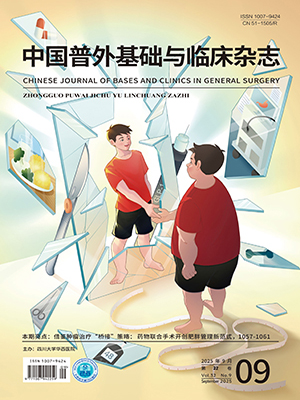| 1. |
Jiang L, Yan LN.Current therapeutic strategies for recurrent hepatitis B virus infection after liver transplantation.World J Gastroenterol, 2010, 16(20):2468-2475.
|
| 2. |
Mehrabi A, Esmaeilzadeh M, Fonouni H, et al.The role of HBIg as hepatitis B reinfection prophylaxis following liver transplantation.Langenbecks Archi Surg, 2012, 397(5):697-710.
|
| 3. |
中华医学会传染病与寄生虫病学会分会、肝病学会.病毒性肝炎防治方案.中华传染病杂志, 2001, 19(1):56-52.
|
| 4. |
Mazzaferro V, Regalia E, Montalto F, et al.Risk of HBV reinfection after liver transplantation in HBsAg-positive cirrhosis.Primary hepatocellular carcinoma is not a predictor for HBV recurrence.The European Cooperative Study Group on Liver Cancer and Transplantation.Liver, 1996, 16(2):117-122.
|
| 5. |
李春满, 李立.肝移植术后乙肝复发的预防和治疗.中国普外基础与临床杂志, 2004, 5(2):416-417.
|
| 6. |
白桂芹, 成军, 刘妍, 等.拉米夫定在肝移植患者抗病毒治疗中的应用.世界华人消化杂志, 2004, 12(10):2432-2434.
|
| 7. |
Maguire D, Heaton ND, Smith HM.Failure of reactivation of hepatitis B after liver transplantation in hepatitis B surface antigen negative, core antibody-positive recipients.Transplantation, 2002, 73(3):481-482.
|
| 8. |
Bourne EJ, Dienstag JL, Lopez VA, et al.Quantitative analysis of HBV cccDNA from clinical specimens:correlation with clinical an dvirological response during antiviral therapy.J Viral Hepat, 2007, l4(1):55-63.
|
| 9. |
Mohanty SR, Cotler SJ.Management of hepatitis B in liver transplant patients.J Clin Gastroenterol, 2005, 39(1):58-63.
|
| 10. |
Perrillo RP, Wright T, Rakela J, et al.A mulficenter United States-Canadian trial to assess lamivudine monotherapy before and afte liver transplantation for chronic hepatitis B.Hepatology, 2001, 33(2):424-432.
|
| 11. |
李健, 魏宪义, 傅志仁.拉米夫定.乙肝免疫球蛋白防治肝移植术后HBV再感染的功效比较及临床应用进展.中华肝胆外科杂志, 2007, 13(8):568-570.
|
| 12. |
Fox AN, Terrault NA.The option of HBIG-free prophylaxis against recurrent HBV.J Hepatol, 2012, 56(5):1189-1197.
|
| 13. |
Zhu JP, Zhang TL, Li L, et al.Prevention and treatment of hepatitis B recurrence after liver transplantation.Hepatobiliary Pancreat Dis Int, 2003, 2(4):500-503.
|
| 14. |
Yuan CH, Xiu DR, Jiang B, et al.HBV recurrence lowered by lamivudine/HBIG combination therapy in liver transplant patients:ten-year experience.Hepatobiliary Pancreat Dis Int, 2013, 12(2):149-153.
|
| 15. |
Luo KX, Zhou FY, Liu DL, et al.Simple nucleos(t)ides as HBV prophylaxis regime of post-liver transplantation:Six-year followed up.World J Hepatol, 2010, 2(12):447-450.
|
| 16. |
Anderson RD, Chinnakotla S, Guo L, et al.Intramuscular hepatitis B immunoglobulin (HBIG) and nucleosides for prevention of recurrent hepatitis B following liver transplantation:comparison with other HBIG regimens.Clinical Transplantation, 2007, 21(4):510-517.
|
| 17. |
Angus PW, Patterson SJ, Strasser SI, et al.A randomized study of adefovir dipivoxil in place of HBIG in combination with lamivudine as post-liver transplantation hepatitis B prophylaxis.Hepatology, 2008, 48(5):1460-1466.
|
| 18. |
Xi ZF, Xia Q.Recent advances in prevention of hepatitis B recurrence after liver transplantation.World J Gastroenterol, 2015, 21(3):829-835.
|
| 19. |
Marzano A.The prevention of viral recurrence in the long term.Dig Liver Dis, 2009, 41 Suppl 2:S195-S197.
|
| 20. |
Roche B, Samuel D.Prevention of hepatitis B virus reinfection in liver transplant recipients.Intervirology, 2014, 57(3-4):196-201.
|
| 21. |
Jiang L, Yan L, Li B, et al.Prophylaxis against hepatitis B recurrence posttransplantation using lamivudine and individualized low-dose hepatitis B immunoglobulin.Am J Transplant, 2010, 10(8):1861-1869.
|
| 22. |
Marcellin P, Samuel D, Areias J, et al.Pretransplantation interferon treatment and recurrence of hepatitis B virus infection after liver transplantation for hepatitis B-related end-stage liver disease.Hepatology, 1994, 19(1):6-12.
|
| 23. |
Yang Y, Zhang Q, Cai CJ, et al.Prophylaxis of hepatitis B recurrence in post-liver transplantation patients with lamivudine-resistant YMDD mutant.Chin Med J (Engl), 2007, 120(16):1400-1403.
|
| 24. |
Ueda Y, Marusawa H, Kaido T, et al.Efficacy and safety of prophylaxis with entecavir and hepatitis B immunoglobulin in preventing hepatitis B recurrence after living-donor liver transplantation.Hepatol Res, 2013, 43(1):67-71.
|
| 25. |
Chen J, Yi L, Jia JD, et al.Hepatitis B immunoglobulins and/or lamivudine for preventing hepatitis B recurrence after liver transplantation:a systematic review.J Gastroenterol Hepatol, 2010, 25(5):872-879.
|




